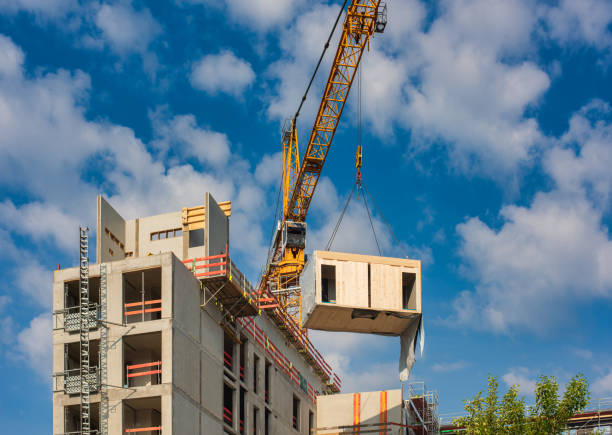Understanding Construction Services in Today’s Market
The construction industry is experiencing a significant transformation, driven by technological advancements, sustainability concerns, and changing market demands. As we delve into the world of construction services, it's essential to understand how these factors are reshaping the industry landscape. From innovative building techniques to the integration of artificial intelligence, the construction sector is evolving rapidly, offering new opportunities and challenges for professionals and businesses alike.

How is sustainability shaping the future of construction?
Sustainability has become a cornerstone of modern construction practices. As environmental concerns grow, the industry is adapting to meet new standards and expectations. Green building practices, such as using recycled materials and implementing energy-efficient designs, are no longer optional but increasingly mandatory. Construction companies are now focusing on reducing their carbon footprint, not only during the building process but throughout the entire lifecycle of structures.
What role does technology play in reshaping the building industry?
Technology is revolutionizing the construction sector in unprecedented ways. Building Information Modeling (BIM) has transformed how projects are planned and executed, allowing for better collaboration and more accurate predictions of project outcomes. Drones are now commonly used for site surveys and progress monitoring, while 3D printing is beginning to make its mark in creating building components and even entire structures. These technological advancements are improving efficiency, reducing costs, and enabling more complex designs.
How are construction services adapting to market demands?
The construction industry is becoming more client-centric, with services tailored to meet specific needs and preferences. Modular construction, for instance, is gaining popularity due to its speed and cost-effectiveness. Additionally, there’s a growing demand for smart buildings that incorporate Internet of Things (IoT) devices for improved energy management and user comfort. Construction services are also expanding to include post-construction maintenance and facility management, offering comprehensive solutions to clients.
What are the latest trends in construction project management?
Project management in construction is evolving with the integration of cloud-based software and mobile applications. These tools enable real-time collaboration, data analytics, and improved resource allocation. Lean construction principles are being widely adopted to minimize waste and maximize value. Moreover, there’s an increasing focus on risk management and predictive analytics to anticipate and mitigate potential issues before they arise.
How is the construction workforce changing?
The construction industry is facing a significant skills shortage, prompting changes in workforce development and recruitment strategies. There’s a growing emphasis on vocational training and apprenticeship programs to attract and retain skilled workers. Additionally, the industry is becoming more diverse, with efforts to include more women and minorities in construction roles. The use of robotics and automation is also changing the skill sets required in the industry, with a higher demand for technologically proficient workers.
What are the cost implications of new construction trends?
The adoption of new technologies and sustainable practices in construction often comes with initial cost increases. However, these investments typically lead to long-term savings and improved project outcomes. Here’s a comparison of traditional vs. modern construction approaches:
| Approach | Initial Cost | Long-term Cost | Sustainability | Efficiency |
|---|---|---|---|---|
| Traditional | Lower | Higher | Lower | Lower |
| Modern (Tech-driven) | Higher | Lower | Higher | Higher |
| Green Building | Higher | Lower | Highest | High |
Prices, rates, or cost estimates mentioned in this article are based on the latest available information but may change over time. Independent research is advised before making financial decisions.
In conclusion, the construction industry is at a pivotal point, with sustainability, technology, and changing market demands driving significant transformations. Companies that adapt to these trends and invest in new technologies and skills will be better positioned to thrive in the evolving construction landscape. As the industry continues to evolve, it presents exciting opportunities for innovation, efficiency, and sustainable growth.
The shared information of this article is up-to-date as of the publishing date. For more up-to-date information, please conduct your own research.






